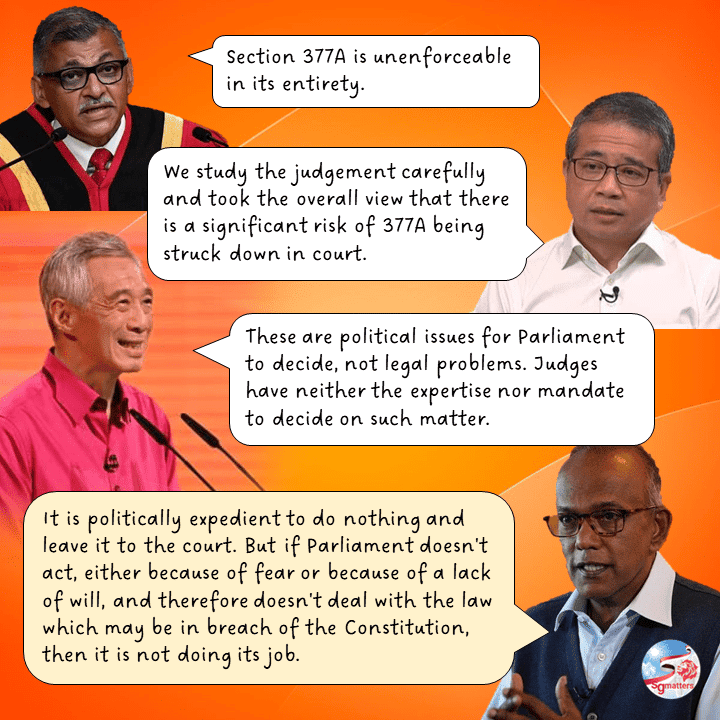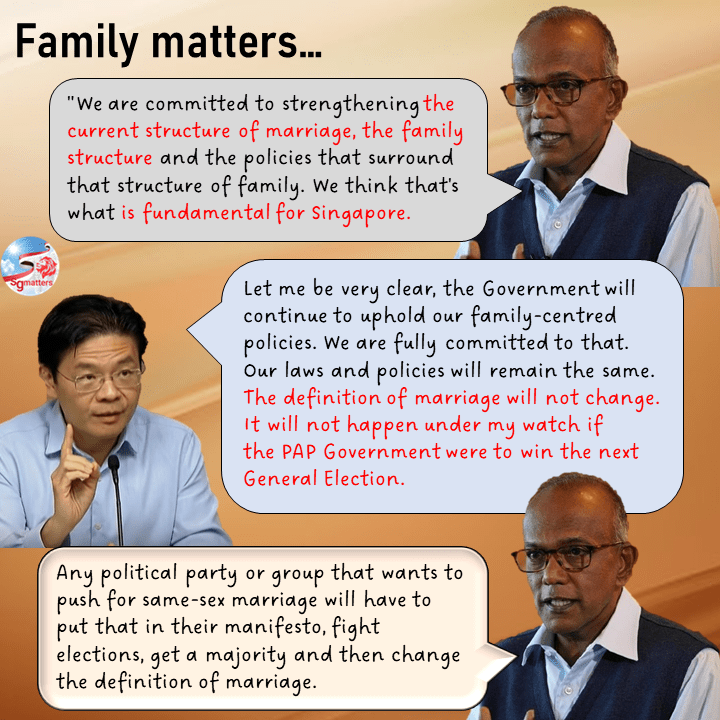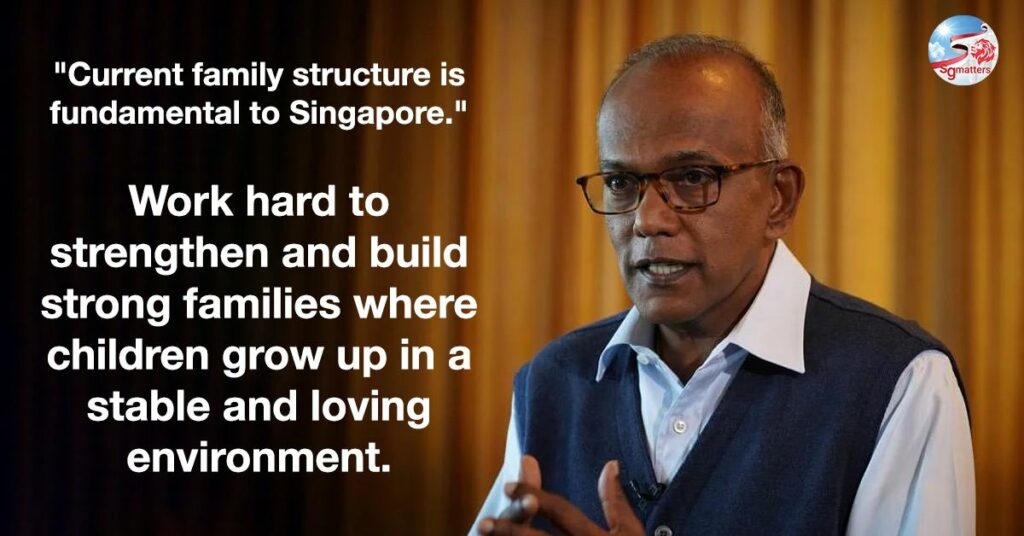Why repeal?
'Everything could go in one sweep'

What should the government's posture be?
Politically expedient to do nothing but that would not be right
Such political issues should not be decided by the judiciary, but by the legislature, said Mr Shanmugam.
Court processes are “adversarial” by nature
DPM Lawrence Wong said, “Any court judgment will lead to a win-lose outcome for the parties involved, and such an outcome will divide and polarise our society further.”
“The courts themselves have said that the political realm is the more obvious choice for such decisions to be made because through a political process, we can accommodate and balance the different views and aspirations of Singaporeans,” he added.
What the government plans to do; the prerogative of Parliament to define marriage
The repeal of Section 377A will be done in a “very careful and controlled manner” that reflects societal attitudes.
The PAP Government's position on marriage and family
The intended amendment to the Constitution leaves open the possibility for Parliament to change the definition of marriage through a simple majority.
The PAP government’s position is very clear, said Mr Shanmugam.
“We are committed to strengthening the current structure of marriage, strengthening the family structure and the policies that surround that structure of family. We think that’s what is fundamental for Singapore. And in fact, we are amending the Constitution to strengthen their position.”

Entrench definition of marriage into Constitution?
Some religious groups have urged the Government to entrench the definition of marriage in the Constitution.
The National Council of Churches Singapore, for example, wants the definition of marriage expressed in the Constitution and a declaration that only such marriages will be recognised.
Similarly, the Roman Catholic Archdiocese of Singapore has said that it was necessary to enshrine and define marriage as between a man and a woman in the Constitution before 377A is repealed.
Not approriate to entrench definition of marriage into Constitution
Mr Edwin Tong said it may not be appropriate to entrench the definition of marrige in the Constitution because this entrenchment would elevate marriage to the same level as fundamental rights in our Constitution – rights such as life and personal liberty. “And this would fundamentally change the whole complexion and schema of the Constitution,” he added.
Another point Mr Tong pointed out was this: “If we hard coded marriage in this way in the most fundamental legal document in Singapore, we may end up prompting those who disagree with this position to campaign, to mobilise, agitate perhaps even with greater intensity, and we don’t think this will be good for society.”
Mr Tong reiterated that the Government is proposing “a very carefully calibrated package of amendments to strike the right balance” for Singapore.
In conclusion
s377A will be repealed in a controlled and careful way to accommodate and balance the different views and aspirations of Singaporeans.
At the same time, the Government will strengthen protection for the current definition of marriage from being challenged in the court.
The Government also made clear its position on marriage and family. It believes that the current structure of marriage and family is fundamental for Singapore, and is fully committed to uphold this structure and all the policies that rely on this structure.
Any group or political party that wants to push for same-sex marriage will have to put that in their manifesto, fight elections, get a majority and then change the definition of marriage in Parliament.
Let us work hard to strengthen and build strong families where children grow up in a stable and loving environment.





